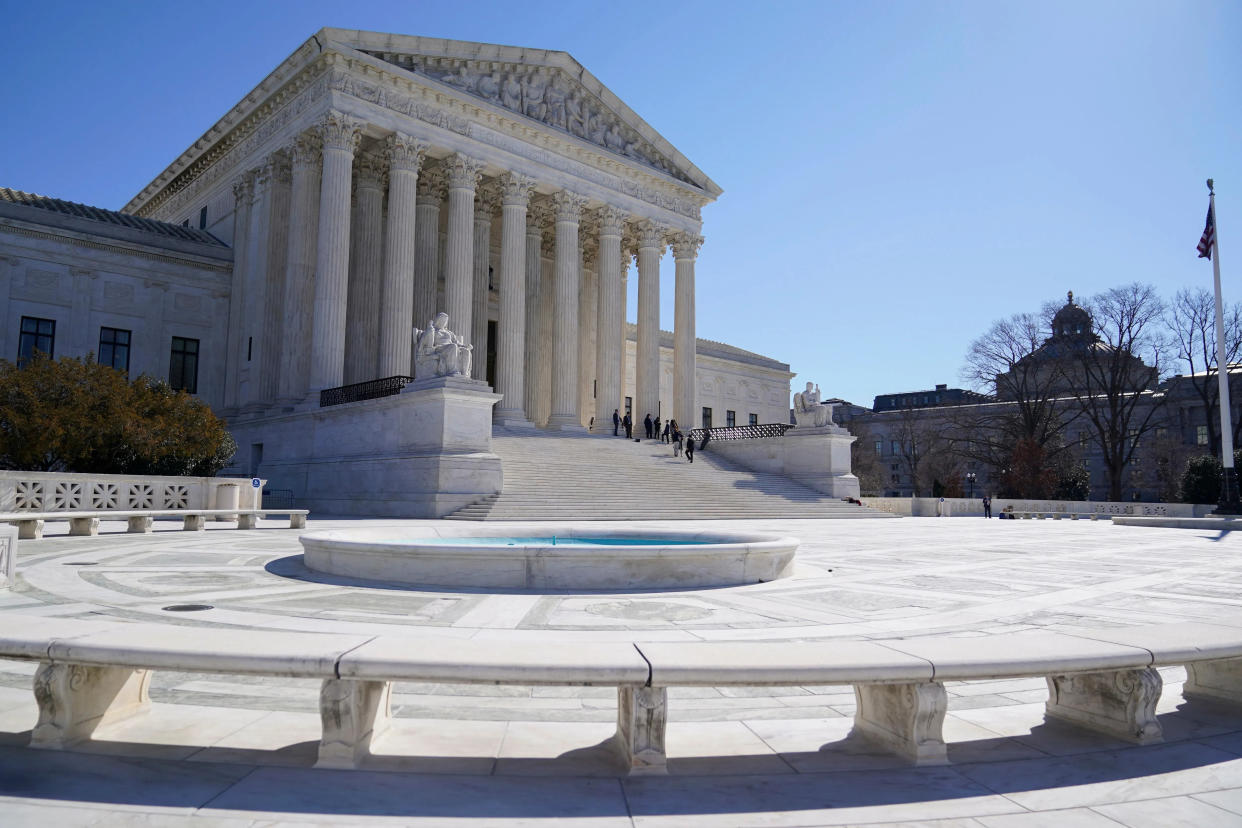Fallout: The political backlash of the Dobbs ruling

- Oops!Something went wrong.Please try again later.
A month ago, the Republican party stood on the threshold that most people in my profession would have called a “wipeout.” It was an election that would have taken both the House of Representatives and the US Senate back into the GOP fold, signaled near lockdown on Democratic bills, appointments, and initiatives for two years, and put them in an enviable position to retake the White House in 2024.
But this was before the downfall of Roe V. Wade, the Constitutional protection of privacy that ensured that abortion rights (and many others) would be protected by Constitutional precedent.
The backlash on this is ugly and angry. Arguably, two issues – guns, and “right to life” – have kept Republican support strong for decades and were exactly the issues that have fired up the base of the party in crucial moments. But the overturning of Roe v. Wade, widely perceived as a crucial element of women’s rights, is looking more and more like an albatross for GOP candidates with every passing day.

As long as the law built around Roe was sacrosanct, rightward politicos could take any extreme position they wanted, since whatever they proposed was unlikely to be implemented. The issue would always be there – up for hot button debate. Until suddenly it wasn’t.
The right to life battle was the one the GOP could not afford – politically - to win. Real trouble was first signaled shortly after the ruling and came from a somewhat unexpected quarter: former President Trump, who reportedly quietly told aides that the new ruling was “very bad for the (Republican) party.”
He’s probably right.
The substantiated fact is that while Americans are sharply divided on this issue, the clear majority favor at least some free access to the procedure. In some states - Utah, Alabama, Mississippi, South Carolina – the ruling poses no real challenge. In others there was never much chance of GOP gains anyway - New York, California, and most of the Eastern seaboard. It’s the great in-between, where tightly contested House and Senate races leading to control of these chambers may be decided, that the political effect of the ruling will be most felt.
In Florida, Governor DeSantis’s political future may very well hinge on how he handles this mess over the next few weeks and months. First, there is a pending case in the state courts over his 15-week limitation bill – based on a constitutional right to privacy enshrined in the Florida Constitution, though missing in the U.S. Constitution. Second, DeSantis also is well aware that he faces an electorate that is far more progressive on this issue than many presume. Florida is not Alabama or Mississippi. As a candidate for Governor with presidential aspirations, DeSantis must run on two levels: he must capture the Florida governorship for a second term, without, somehow, alienating the base of the Republican primary voters in a future nationwide contest.
Senate races, such as Marco Rubio’s, where a right-to-life Republican is likely running against a strong and savvy Democratic challenger, the Dobbs v. Jackson Women's Health Organization decision by the U.S. Supreme Court, simply creates more Democratic opportunities.
Complicating matters further in the national battle for Senate control, GOP candidate problems have cropped up as well. The crowded primary slate in Missouri, for example, which could produce a scandal-ridden general election candidate in former Governor Eric Greitens. Incumbent Senator Ron Johnson of Wisconsin, already heavily on the defensive for his role in the January 6th insurrection, is at real risk. Or Heschel Walker in volatile Georgia, who has morals issues of his own as he faces Democratic incumbent Senator and pastor Raphael Warnock. The Dobbs ruling adds hitches candidates like these can ill afford. Control of the Senate – once a sure bet for Republicans – is now questionable.
In the end, the Dobbs “win” has left many Republican campaigners wondering “what now?” But the unfolding strategic plan for Democrats and their allies is glaringly obvious, direct, and filled with furious intensity.
R. Bruce Anderson (randerson2@flsouthern.edu) is the Dr. Sarah D. and L. Kirk McKay Jr. Endowed Chair in American History, Government, and Civics at Florida Southern College in Lakeland.
This article originally appeared on The Ledger: Fallout: The political backlash of the Dobbs ruling

